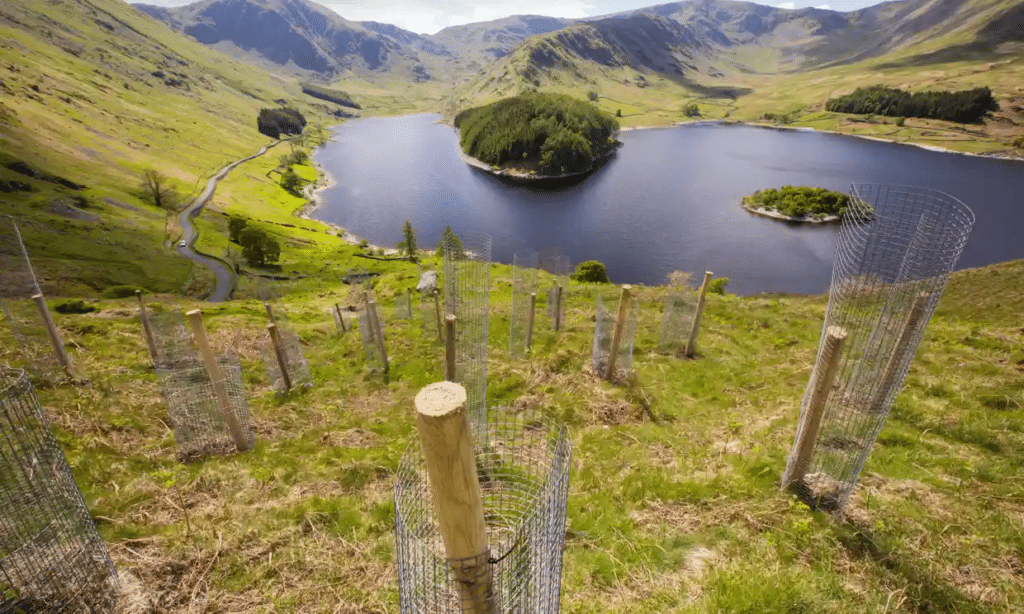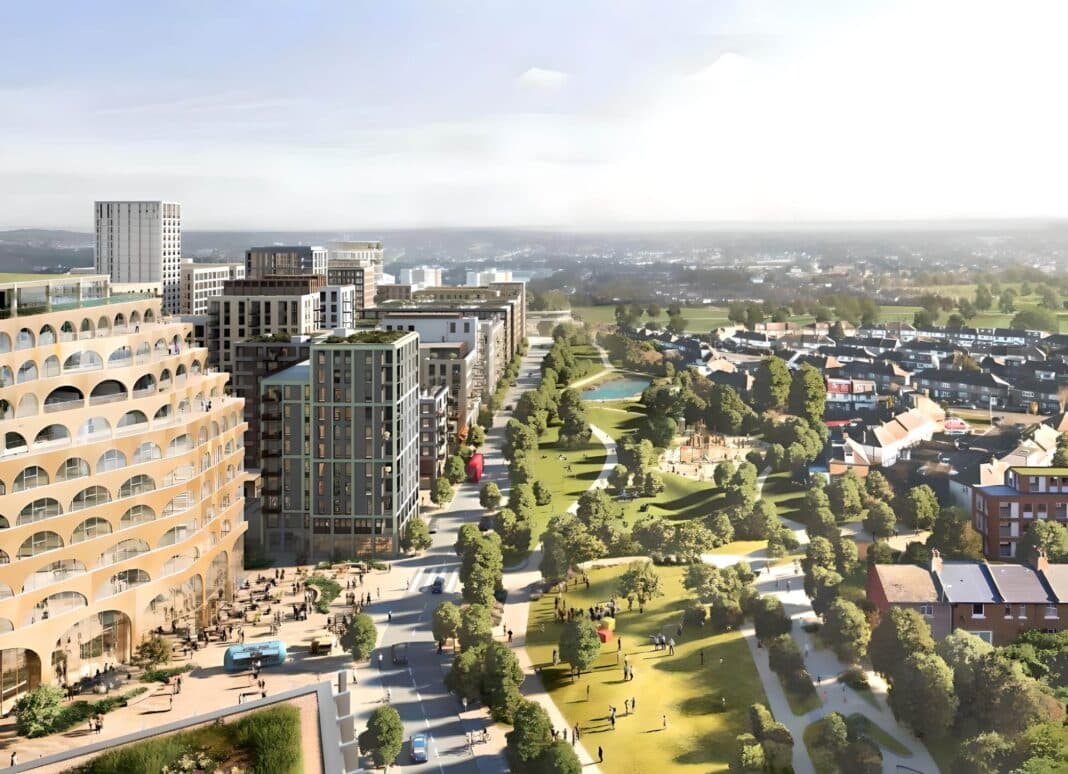The United Kingdom has revealed plans to scale up timber used in construction, which the government acknowledges “is (one of) the best way to reduce emissions in buildings” and meet Net Zero targets.
Significantly, from next year, all UK-government-funded construction projects will measure embodied carbon, with the government also committing to the Industrial Deep Decarbonisation Initiative at COP28.
The initiative, also supported by Canada, Germany and the United States, has committed to using the global buying power of national governments to procure green steel, cement and concrete – as part of a broader commitment to finance low embodied carbon projects.
Wood Central understands that the initiative will also drive demand for timber, a low-carbon alternative to conventional material, with the governments joining a timber coalition to expand wood-based construction.
Announced yesterday, “Timber in construction roadmap” is the latest, and to date, the most ambitious policy delivered by Rishi Sunak’s Conservative Government to reduce the barriers to using timber construction across England.
It will promote English forestry as a “green investment opportunity,” market homegrown C16 softwood timbers “as a fit for purpose” solution and develop higher-strength timbers from its forest resource.
As well as increase collaboration with insurers, lenders, and warranty providers – which could see the government introduce a risk register by 2028 – and invest in volumetric timber and off-site construction systems to develop faster and more circular construction methods.
Wood Central has obtained a copy of the report, which supports the UK’s “Net Zero Strategy, the England Trees Action Plan and the 2023 Environmental Improvement Plan to increase the safe use of timber in construction (TiC) in England.”
It will “help reduce embodied carbon in the built environment and drive investment into tree planting, forest management and domestic supply chains, creating new green jobs and industries.”
The UK is the world’s third-largest import market and, in recent months, has been under scrutiny to embrace the EU’s new EU Deforestation Regulations, with more than 80% of forest products used in the UK economy imported from overseas.
According to Forestry Minister Rebecca Pow, the policy supports the Sunak government’s investment in growth before adding, “the built environment is responsible for a huge proportion of UK carbon emissions, (with) homegrown timber key to reducing emissions.”
A vital part of the plan is to address the UK’s softwood availability, which is expected to reduce over the next 25 years and grow woodland cover to at least 16.5% of England by 2050.
To meet Net Zero targets, “(we) must produce more timber through homegrown trees and lock up carbon using the timber in our buildings,” according to Richard Standford, the UK’s Forestry Commission CEO.
“We need to boost productive forestry in England to support timber security and reduce our overreliance on imports while tackling our nature crisis by improving biodiversity, water quality, and giving people access to green spaces.”

In July, Wood Central reported that the UK was struggling to meet tree-planting targets, with a report presented to the House of Lords showing that less than half of the committed trees have been planted.
At the time, the CEO of Confor, Stuart Goodall, said the report “highlighted how a failed generation of policymaking has led to a decline in wood production in England.”
Mr Goodall said the “key part of this will be securing an increased future supply of wood from England’s forests.”
The policy “recognises the climate change mitigation benefits and additional economic activity that can be delivered from a thriving and growing domestic wood supply chain.”
Just 9% of English homes are timber-framed (based on 2019 figures), which compares to Scotland, where this figure was 92%. Given England’s low rates of timber building, the government is looking to unlock the industry at scale and speed.
However, this can and will change with growing awareness of embodied carbon and the push to build with greener, cleaner and more sustainable materials.
“By expanding low-carbon timber construction, particularly in the housing sector, we can decarbonise our built environment whilst simultaneously building high quality, efficient buildings,” according to David Hopkins, the CEO of Timber Development UK.
He said timber construction, which can store up to 400% more carbon when made out of engineered timber products rather than concrete, has been recognised as essential to tackling emissions by key advisory bodies such as the Environmental Audit Committee and Climate Change Committee.
The policy, which has seven key priority areas, will be considered alongside broader government-industry initiatives for industrial decarbonisation, which includes the low-carbon concrete route map led by the Green Construction Board.
- For more information, download the “Timber in Construction roadmap” here.







